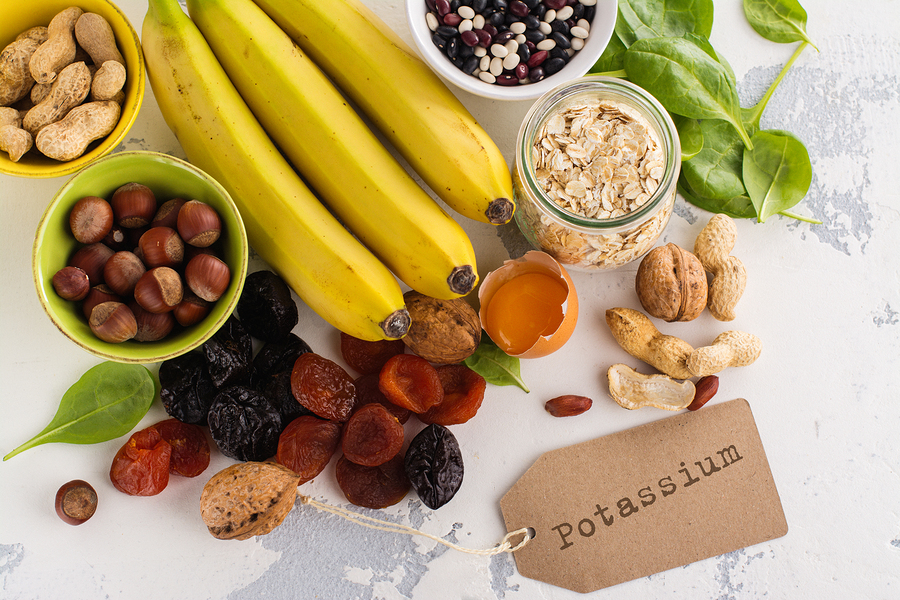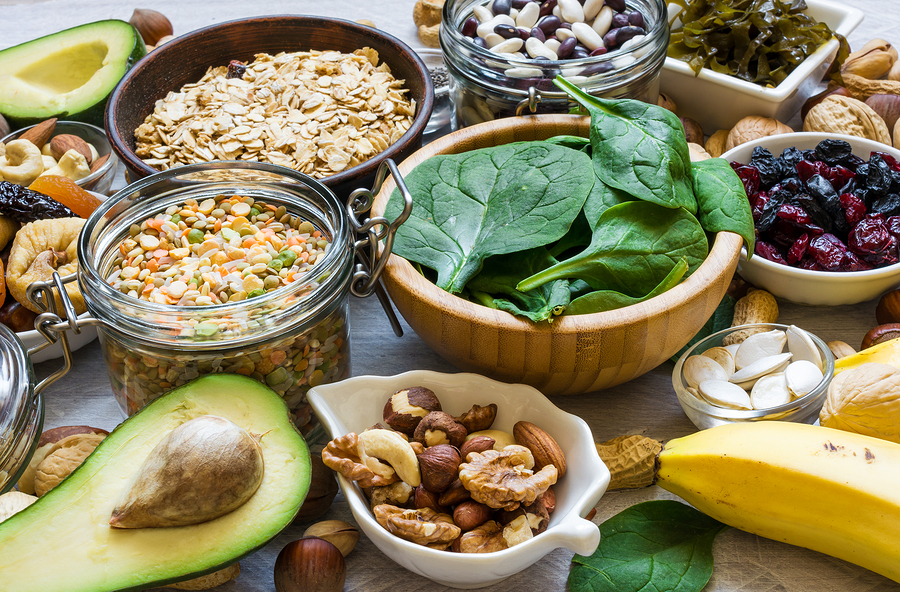- Make It Yourself Lavender Heart-Shaped Bath Bombs!
- 20 Things You Never Knew About “Down There”
- 12 Best Foods For Those Suffering From Arthritis Pain
- 12 Personal Hygiene Mistakes Almost Everyone Makes (Mom Never Told You About #4!)
- 15 Medicinal Plants And Herbs From The Cherokee People
- 12 Mind-Blowing Benefits Of Drinking Coconut Water During Pregnancy
- 12 Outstanding Winter Foods That Won’t Fatten You Up Like A Christmas Turkey
Vital Benefits Of Commonly Ignored Potassium
While most people are aware on some level that potassium is beneficial, not many could really tell you why. Most folks might know you can get potassium from bananas, but few among the general public understand just how vital this mineral is.
Potassium is considered an essential nutrient, and unfortunately, the vast majority of those living in the industrialized world are deficient. In the United States alone, a survey found that a staggering 95 percent of adults fail to get enough potassium through their diets. Potassium deficiency has been linked to many serious and even fatal health problems. This article will break down what potassium is, why it’s so important, and simple changes you can make in your diet to ensure you’re getting enough.
Why is Potassium So Important?
Potassium is an electrolyte, meaning that it helps facilitate the conduction of electrical charges in the body. Other electrolytes that work in conjunction with potassium include magnesium, calcium, and most importantly, sodium. The balance between sodium and potassium levels in the body is actually very important, and all kinds of health problems can occur when the ratio between these two electrolytes is imbalanced.
Potassium plays a crucial role in the transmission of nerve impulses, cardiovascular health, muscle contractions, and the regulation of body fluids and blood sugar.
The National Academy of Medicine (formerly known as the Institute of Medicine) recommends consuming 4700 mg of potassium per day for adults. The World Health Organization recommends 3510 mg per day. While these figures may differ, both organizations agree that most people are not getting nearly enough. As mentioned above, the vast majority of people around the world are are woefully deficient. The average adult in the United States, for example, is only getting around 2600 mg daily.
Potassium deficiency, or hypokalemia, has been linked be linked to many conditions, some of which are very serious. Symptoms of deficiency include:
- Muscle weakness
- Constipation
- Low energy/Fatigue
- Confusion
- Paralysis
- Irritability
- Cramps
- Irregular heartbeat
- Kidney disease
In addition to these symptoms, evidence has been uncovered suggesting a strong link between inadequate potassium levels and heart disease, higher blood pressure, and an increased risk of stroke. A report in Today’s Dietitian detailed a study on the effectiveness of a high potassium diet on people at risk of heart disease. Participants who ate at least 4069 mg of potassium per day saw their risk lowered by 49 percent versus those who ate less than 1000 mg daily.
Low levels of potassium are also sometimes a symptom of another conditions like hypothyroidism or extreme dehydration caused by diarrhea or nausea.
Continue to Page 2
How to Make Sure You’re Getting Enough Potassium
While potassium deficiency can be serious, the good news is that fixing the problem is quite easy.
While potassium supplementation is an option, it is usually of a synthesized variety. Multivitamin supplements marketed as having everything you need are usually extremely inadequate as far as potassium goes. Supplements are not recommended for anyone who has kidney disease or is using an ACE inhibitor.
The best way, by far, to get proper amounts of potassium is through diet.Remember: Your body cannot store potassium, so it is important to consistently eat the proper foods to ensue you are getting enough and keeping your sodium and potassium levels balanced.
The most potassium-rich foods are vegetables, legumes, and certain types of fruits. To provide a general idea of what you should be eating, below is a list of ideal sources for potassium along with how much is found per serving:
- Avocado (975 mg per fruit)
- Beet Greens (650 mg per 1 cup)
- Baked Potato with skin (919 mg per single potato)
- Banana (360 mg per banana)
- Baby Carrots (320 mg per 10 carrots)
Other excellent sources of foods high in potassium include spinach, broccoli, fresh tomatoes, oranges, cantaloupe, coconut water, black beans, and lima beans.
For those who want more protein, canned salmon (286 mg per 3 oz) and yogurt (320 mg per 6 oz) are also good sources of potassium.
Note: If you already have a kidney disease, there is some evidence suggesting that eating more potassium can sometimes make it worse. Speak with you doctor before making any changes in your diet. A kidney problem is never something that should be treated lightly.
READ ALSO: 8 Warning Signs Of Magnesium Deficiency You Shouldn’t Ignore Video
All it takes to fix a potassium deficiency a few simple changes in diet. Since a potassium deficiency can be linked to a wide variety of health problems, speak with a doctor if you suspect you are severely deficient. Otherwise, pick up some avocados and begin your journey toward a healthier and happier life!
References:


































